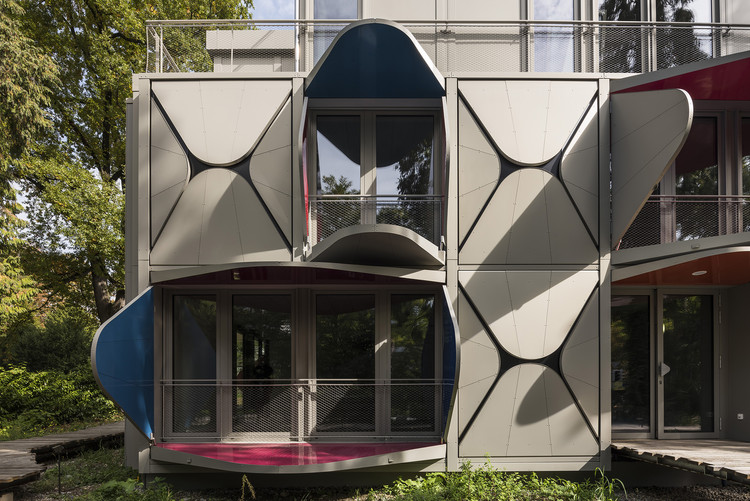
-
Architects: Manuel Herz Architects
- Area: 600 m²
- Year: 2017
-
Lead Architects: Stefan Schöch

Text description provided by the architects. The site is located in one of the residential quarters in the heart of Zurich, close to the lake and just meters away from Le Corbusier’s Heidi Weber Museum. One of the greatest qualities of the site is its garden, which is marked by a wild and primeval quality. Walking through it, we encounter surprises, wild plants, installations, objects that seem like the remains of forgotten cul- tures, trees with sculptural qualities and footpaths that disappear into nowhere. At the same time the construction of the house is only possible with the felling of the most impressive tree. This tree that dominates the center of the garden, with its peculiar twisted trunk and its thick, crooked, knotty branches. The wild garden, but also the loss of the central tree becomes one of the themes of the project design.





































